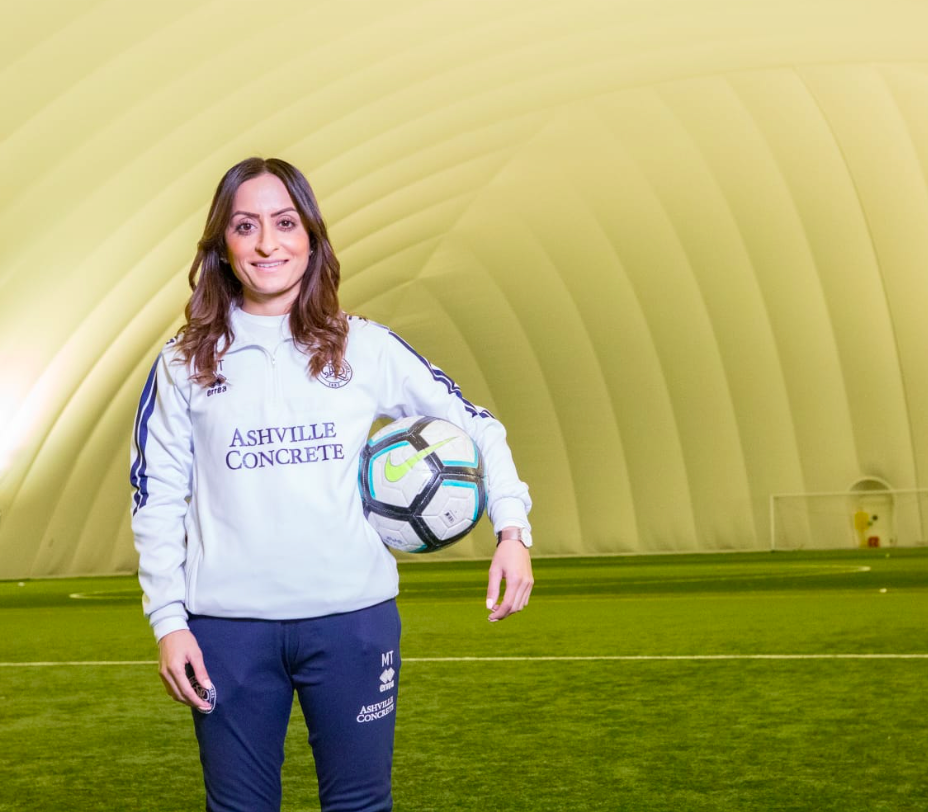
Manisha Tailor MBE
Former Assistant Head of Coaching (QPR)
A former Deputy Headteacher and the first person of South Asian heritage to become Assistant Head of Coaching at QPR Boys’ Academy.
Manisha holds both the Advanced Youth Award and A Licence qualifications respectively. She also, obtained an MA in Leadership in 2011, the same year, Manisha passed here NPQH.
She’s authored ’50 Wellbeing Lessons for the Diverse Primary Classroom’ and ‘Dream Like Me: South Asian Football Trailblazers’ which provide a toolkit to help young people engage in discussions around Mental Health and Diversity.
How would you define a parent’s role within the youth sports environment?
I think that parents play an instrumental role in supporting their child’s participation, interest and enjoyment when playing sport. Through partnership and collaboration between the parents and the club / organisation, children can be in a position to flourish through an environment that is safe and centred around their strengths and needs.
What are the benefits of being a positive youth sports parent?
Being a positive youth sports parent can help towards increasing levels of motivation towards the sport, build trust between the parent and the child without any fear of failure. Young children tend to seek approval and any negative behaviours associated with failure can be detrimental on a child’s confidence, self-esteem and mental health. It can result in children losing a love for the sport.
Tell us a bit about how your parents supported you through the journey into becoming a player/coach/teacher?
I grew up in a time where there were very few opportunities for girls, and those from South Asian backgrounds, to play structured football. I fell in love with football in 1988 at 8 years old and played for my school team, which was mixed gender. On entering secondary school unfortunately the opportunities to play in school were limited due to a lack of interest from girls to field a football team. This resulted in myself and my best friend playing at lunchtime, on the field in our school uniform!
Whilst my parents were supportive of playing football at school, there was much taboo around me entering a team outside of a school environment. My parents didn’t see any Indian girls playing football and perhaps this lack of visibility and opportunity contributed to me ever thinking that pursuing a playing career was viable.
Developing a love for working with children, I embarked upon a career in teaching and it was here that I learned about coaching and roles that existed within football. With the collaboration with schools, I helped to not only set up and lead on school football, but liaised with external agencies to use football as a tool for supporting children in literacy and numeracy. One such link was with Rachel Yankey and Arsenals’ ‘Double Club’. From Rachel I learned that I could obtain coaching qualifications and began my level 1 journey in 2009.
This has led me to many great experiences including coaching abroad, being part of national governing bodies, volunteering within grassroots clubs in addition to a girls centre of excellence and more recently within the professional game working in a boys academy. My parents have been incredibly supportive of my journey and understood my purpose for taking a career change. When my twin brother developed a mental illness, I couldn’t understand it and have found it challenging to accept, although 22 years on. Working in football has allowed me to connect with my brother and reignite my love for the game. I am able to amalgamate the two things I love the most, football and education and am grateful for the opportunities, learnings and support that I have received to date.
Tell us how your parents supported you in becoming a player/coach/teacher?
Advice to the player
Life is a journey and you must try to enjoy connecting with opportunities, meeting new people and making friends. Things may not always work out the way you would like, but that’s ok – use learnings to build resilience, find different ways of doing things and be happy!
Advice to the parents
Facilitate and support your child’s interests – they are relying on you to help them learn, grow and develop.
What advice would you give coaches/clubs regarding youth sports parents?
Be clear with your purpose and how this is communicated to the parents. It is important that the parents understand your vision and their responsibility in helping their child develop within your environment. Regular communication and involving the parents when establishing club culture and expectations helps with the process of building trust and relationships.
What advice would you give youth sports parents for the car journey to and from youth sports practices and/or games?
Consider the language that you use and ensure that it is purposeful, focused on the learning. Allow your child to speak, without fear and judgment and facilitate the conversation, allowing your child to lead. Be encouraging, helping the child to not only describe, but self-reflect, working towards critical and growth mindset thinking.
Thank you to Manisha for taking the time to complete the following interview questions.









